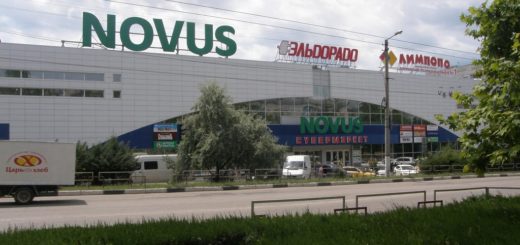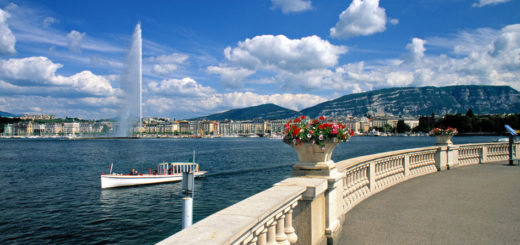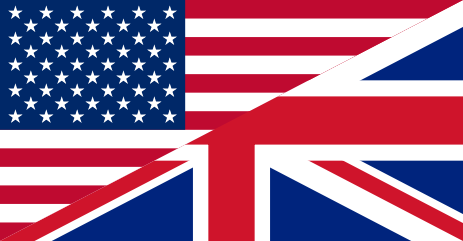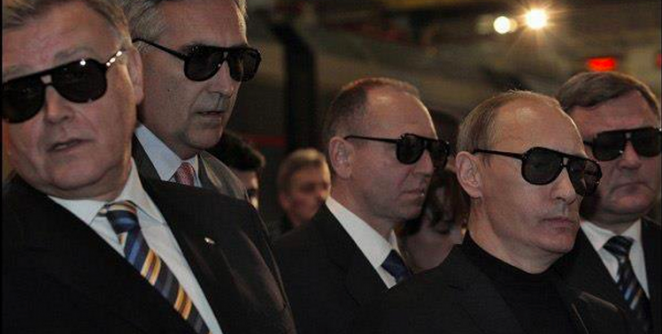Lithuanian filter. How Czech and German power plant equipment ended up in Crimea
Rūta Juknevičiūtė, LRT Investigation Department, Mikhail Maglov, Scanner Project, Ivanna Trutnenko, Radio Liberty
INVESTIGATION SUMMARY
• 17 декабря 2018 года у литовского предприятия Run Engineering, работающего в Каунасе, отозвали лицензию на экспорт товаров двойного назначения — возникло подозрение, что продукция компании может оказаться в аннексированном Крыму. За несколько дней до отзыва лицензии в Россию через Литву были вывезены немецкие мембраны производства Inge GmbH, которые ранее задерживала литовская таможня.
On December 17, 2018, the Lithuanian enterprise RUN Engineering operating in Kaunas was revoked the license for the export of dual-use goods – there was a suspicion that the company’s products could end up in the annexed Crimea. A few days before the license was revoked, German membranes manufactured by Inge GmbH, which had previously been detained by the Lithuanian customs, were exported to Russia through Lithuania.
• After the revocation of the license, RUN Engineering successfully exported equipment to Russia to the Voronezh-Aqua enterprise, which since 2016 has participated in the construction of the Tavricheskaya and Balaklava power plants in Crimea.
• The Czech company Lavimont Brno, owned by the Lithuanian RUN Engineering, participated in the construction of the Astravets Nuclear Power Plant in Belarus. The companies also supply equipment for other Russian energy projects implemented by the Russian state corporations.
• RUN Engineering, through the Cyprus Nestan LTD, belongs to a mysterious shareholder – Marina Karmysheva. Voronezh-Aqua declares that the Lithuanian company is its design bureau.• RUN Engineering’s shareholders are closely associated with the President of Rosneft Igor Sechin, who came under Western sanctions, as well as with Russian businessmen, brothers Dmitry and Andrey Kotenko, and the Region group of companies owned by billionaire Sergei Sudarikov.
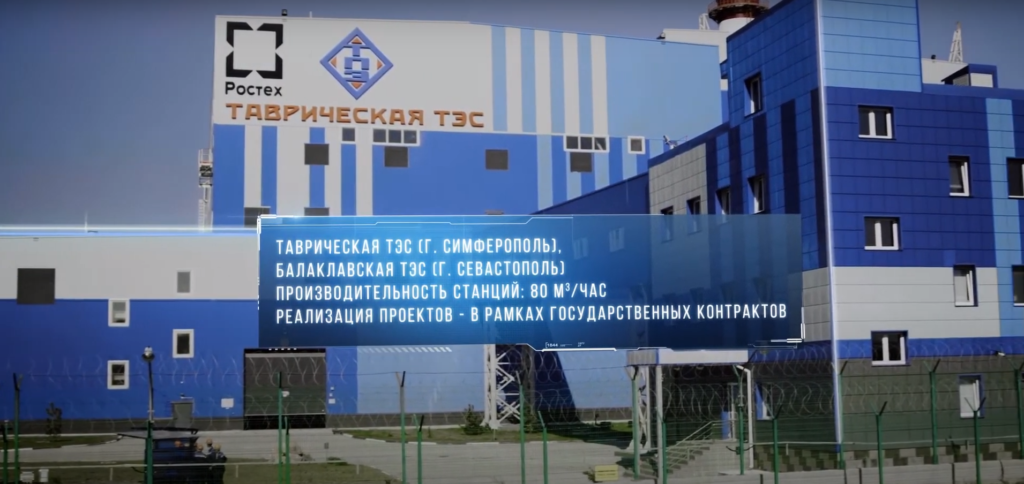
После аннексии Крыма российские власти столкнулись с двумя серьезными проблемами — дефицитом воды и электричества на полуострове. Собственных технологий для решения этих задач у России не было, а установить импортное оборудование мешали введенные из-за аннексии санкции. Однако новые электростанции были построены и запущены. Scanner project и отдел расследований Литовского национального радио и телевидения выяснили, как компаниям, связанным с Игорем Сечиным, удалось это сделать.
After the annexation of Crimea, the Russian authorities faced two serious problems – a shortage of water and electricity on the peninsula. Russia did not have its own technologies for solving these problems, and the sanctions imposed due to the annexation prevented the installation of imported equipment. However, new power plants were built and started up. Scanner Project and the investigation department of the Lithuanian National Radio and Television found out how the companies associated with Igor Sechin managed to do this.
In March 2019, Putin arrived in Crimea to celebrate another anniversary of the annexation and personally take part in solving one of the main problems of Crimea – the lack of electricity, by launching new units at two power plants, Balaklava and Tavricheskaya.
Putin arrived at the opening ceremony with Russian Energy Minister Alexander Novak and Dmitry Kozak, at that time the Deputy Prime Minister of the government. The delegation was accompanied by Sergey Chemezov, general director of the state corporation Rostec, which was responsible for the construction of power units. Sergei Chemezov has been friends with Putin since Soviet times, they worked together in the Dresden KGB residence and lived in the same house.
“Today, another step has been taken in strengthening the security of the Crimean Peninsula, and indeed of the entire south of the Russian Federation,” Putin said before the launch of the second power units.
The stations are equipped with four Siemens turbines. Their deliveries to Crimea through the subsidiary of Rostec, Technopromexport, became known in 2017. The installation of European-made turbines in Crimea directly violates the sanctions imposed after the annexation. The German holding Siemens then explained that the company’s managers were deceived – the turbines were purchased for installation in the Krasnodar Krai.
As Scanner Project and the LRT (Lithuanian Radio and Television) Investigations Department managed to establish, Siemens is not the only company whose equipment was supplied for the construction of power plants in Crimea, bypassing the sanctions.
Brno-Kaunas-Voronezh-Crimea
Voronezh-Aqua became one of the four contractors for the construction of the stations. Under public government contracts, it received 5.7 billion rubles (€ 62 million). The choice of this particular company is logical: the shortage of water on the peninsula forced the use of the “dry cooling tower” technology with a closed liquid circulation cycle to cool the equipment. In this case, water requires regular cleaning and filtration, and this is what Voronezh-Aqua specializes in. At the Crimean power plants, Voronezh-Aqua was responsible for the water and wastewater treatment equipment, as well as the internal pipelines.
The equipment for filtration and water treatment is designed and manufactured at factories in Lithuania and Czechia, and then exported to Russia at Voronezh-Aqua. This is evidenced by the export data obtained by LTR and Scanner Project. Voronezh-Aqua indicates that its production base is located in Lithuania, at the Kaunas plant.
The Voronezh-Aqua company, through the Voronezh-Aqua Group, belongs to Andrey Kotenko. Brothers Andrey and Dmitry Kotenko have owned a chemical trading company in the Nitol Group since the late 1990s. The group, in turn, has been controlling the Usoliekhimprom plant, which caused the environmental disaster in Usolye-Sibirskoye, since 2004.
Voronezh-Aqua projects include work at the Syzran and Novokuibyshevsk oil refineries and at Rosneft enterprises. In 2017, Dmitry Kotenko declared himself bankrupt with a debt of 2.4 billion rubles (€ 26.4 million).
A significant part of the equipment that Voronezh-Aqua imports to Russia and installs at its facilities is of European origin. Cooling towers, centrifuges, water purification and clarification systems are supplied by the Lithuanian company RUN Engineering and the Czech company Lavimont Brno.
Lavimont Brno manufactures water purification systems and also works at nuclear power plants. In 2016, Leos Tomicek, vice president of Rusatom Overseas, stated that the Czech company Lavimont Brno supplied pipelines for the construction of the Astravets Nuclear Power Plant, which Lithuania calls a threat to its national security.
Until March 2016, Lavimont Brno was owned by Miloslav Vimr, who helped finance the Czech Social Democratic Party (ČSSD). The ČSSD currently holds only 14 seats in the Czech parliament, but is part of the ruling coalition with the populist ANO party of Prime Minister Andrei Babis.
In December 2015, Povilas Medekša, director of the Lithuanian RUN Engineering, and Dmitry Kotenko, chairman of the board of directors of Voronezh-Aqua, also enter the board of directors of Lavimont Brno in addition to Miloslav Vimr. Over the course of two years, RUN Engineering gradually bought back shares from Vimr, and by 2017, it has become the direct owner of Lavimont Brno.
Brno is where the water treatment systems are actually produced, and the Lithuanian RUN Engineering acts only as a sales intermediary. This is beneficial: RUN Engineering is registered in the Kaunas Free Economic Zone, which helps to significantly reduce income taxes and return VAT.
RUN Engineering was founded in 2014 by an employee of Voronezh-Aqua, Aliya Aliakbyarova. Povilas Medekša became the director of the Lithuanian legal entity.
In 2017, Aliakbyarova’s share was reduced to 30%, and the Cypriot company RLA-Aviation LTD becomes the owner of the remaining 70%. In 2019, ownership of RUN Engineering was fully transferred to the Cyprus-based Nestan Ltd. The owner of these offshore companies is Marina Karmysheva, a Moscow native with Cypriot citizenship.
RUN Engineering, which operates in the Kaunas Free Economic Zone, is small, employing only 16 people. The company indicates that it produces equipment for the treatment and filtration of water, which is used in the Russian nuclear power industry.
In a conversation with LRT, the head of the company, Povilas Miadaksa, explained why the plant is located in Kaunas: “Maybe it’s because we are a transit country that enjoys its advantages, being located between East and West?”
RUN Engineering attracted the attention of officials back in the summer of 2018, when the company tried to export dual-use equipment from Lithuania, which could presumably end up in Crimea.
Dual-use goods are those that can be used for both civilian and military purposes, so a special license is required to export them. In Lithuania, it is issued by the Commission for Issuing Licenses for Strategic Goods, which is a part of the Ministry of Economy and Innovation.
As follows from the case that was considered in the Kaunas District Court in June 2019, in the summer of 2018, RUN Engineering tried to export two ultrafiltration units from Lithuania. The representative of the customs broker was accused of not providing an export license for dual-use goods, and when filling out the paperwork, he indicated that these documents were optional.
The Lithuanian State Security Department stated in its 2018 report that RUN Engineering was denied an export license “due to the possible risk of sending equipment to the Russian-occupied Crimea.” The license was denied on December 17, 2018.
Despite this, the company still continued to supply equipment to Russia, as follows from the export data available to LRT and Scanner Project.
From the case considered by the Kaunas District Court, it is clear that after the export was suspended, RUN Engineering tried to export equipment with Dizzler filter membranes. In accordance with the provisions of the Council’s regulations on the export of dual-use goods, a special regime applies to the export of such parts.
The Dizzler membranes arrived at Voronezh-Aqua on December 17, 2018, that is, on the same day that RUN Engineering, according to the data available to LRT and Scanner Project, had its export license revoked. This means that they were sent there a few days before the revocation. The filters were intended for RUN Aqua-UF installations, and the German Inge GMBH was indicated as their manufacturer.
Here is Voronezh-Aqua itself posting a clip on YouTube about the work done at the Crimean power plants. In this shot, you can see equipment with the logo of the German company Inge GMBH and equipment for ultrafiltration from the same manufacturer.
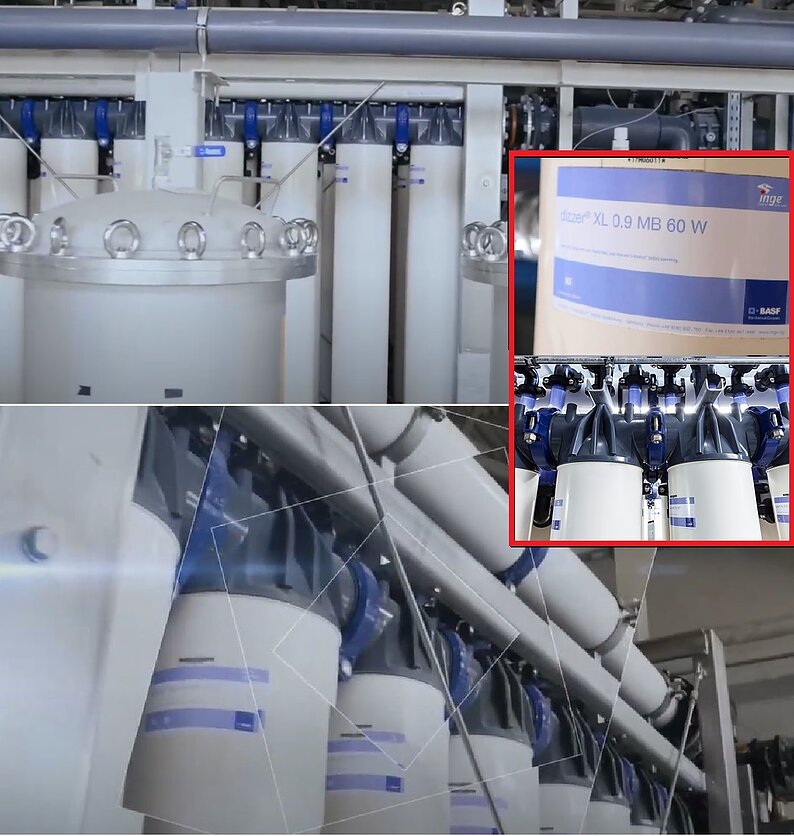
Director of RUN Engineering Povilas Myadaksha claims that after the license was revoked, dual-use goods were not exported to either Russia or Crimea.
He calls the decision to revoke the license political.
“We export the device, but not the membranes, for which licenses are needed. You can say that we export a car, but not the engine,” said Povilas Myadaksha.
The necessary membranes were purchased elsewhere, he said: “The object itself buys them anywhere else: from the Germans, the Chinese, the Japanese, the Dutch. The restrictions imposed by the European Union have only narrowed the market.”
Since December 17, 2018, when RUN Engineering’s license was revoked, various water filtering and water treatment equipment has been exported to Russia 59 times. Six of these shipments included the aforementioned RUN Aqua-UF model, which the Lithuanian customs detained earlier.
LRT sent written questions to the enterprise. In a response letter, RUN Engineering stated: “According to our information, no equipment manufactured by our company has been supplied to any of the facilities mentioned in your query.”
«They had certain business in Crimea»
In 2017, RUN Engineering acquired 100% of the shares of the Czech company Lavimont Brno. They were purchased from a Czech citizen Miloslav Vimr. After the sale of the shares, Vimr also served on the board of directors together with the head of RUN Engineering Povilas Myadyaksha and the chairman of the board of directors of Voronezh-Aqua Dmitry Kotenko.
“I signed a contract in Moscow, in rubles. And then the war began – that’s what you will most likely ask next – the ruble fell, and I would have gone bankrupt. Therefore, I decided to sell the enterprise to the Lithuanians,” the former owner of Lavimont Brno said in a conversation with Radio Liberty.
Now the Czech division is headed by a French citizen Vadim Zaitsev, and since 2019 he has owned 50% of the shares of Lavimont Brno.
According to the reports, the export of the Czech enterprise stopped in December 2018, a few months before the commissioning of the Crimean power plants.
The phone number indicated on the company’s website is disconnected. Our colleagues from Radio Liberty went to the city of Brno, to the office where the company Lavimont Brno is registered, but they did not find anyone at this address.
“I have been working here for about a year, but I have not heard of such an enterprise,” said an employee working in the building.
Radio Liberty journalists visited four more related enterprises, but were unable to communicate with the current head of Lavimont Brno, Vadim Zaitsev, at any of them. He also did not answer the questions sent to him in writing.
Former shareholder and board member of the Czech company Miroslav Vimr said several times that Lavimont Brno had projects in Crimea.
“I didn’t do it myself, but they have already sold to Crimea, yes. I know for sure that they had certain business in Crimea,” he told the Radio Liberty journalist.
“Look, this was a normal enterprise, without any problems. Taxes were paid, bookkeeping was done diligently – everything was as it should be, no problems at all. The only problem, as I understand it, was that they turned towards Crimea,” he added.
The company is not operating now, adds the former owner of Lavimont Brno: “As far as I know, they fired the secretary. They may have moved their business to Ukraine, Lithuania or Russia. I don’t know. Now they are employing people elsewhere. Most likely they just kept the Czech address. When they saw that it was impossible to do business in Czechia, they went bankrupt or left the Czech market. This is my opinion.”
Answering a question about the clients, Vimr replied: “Definitely not in Ukraine. But they really had someone in Crimea, yes.”
Lavimont Brno helped connect pipelines to the Astravets Nuclear Power Plant. Vice-President of Rusatom Overseas Leos Tomicek spoke about the work at the Belarusian power plant in 2016.
Lithuanian customs declined to comment on the RUN Engineering situation.
Asta Kryaučeljunaite, head of the department of prevention of violations of Kaunas territorial customs, explained that the customs check goods based on the established criteria for risk analysis, but they do it selectively.
Who is Marina Karmysheva
Как говорилось выше, Run Engineering формально принадлежит кипрской компании, а та записана на россиянку Марину Кармышеву. Она, в свою очередь, связана с бизнесменом, входящим в российский список Forbes.
As mentioned above, RUN Engineering formally belongs to a Cypriot company, which is registered in the name of the Russian woman Marina Karmysheva. She, in turn, is associated with a businessman included in the Russian Forbes list.
The leaked databases of the Russian departments say that since 2003 Karmysheva has been working in the structures of the Region group of companies. From 2009 to 2016, Karmysheva was the director of the Cypriot Region Group (formerly called WHPA Ltd), a key company in the structure of the Region Group of Companies, which is owned by businessman Sergey Sudarikov.
According to the Russian business register, 100% of the Voronezh-Aqua Group is pledged by the Region Group.
Sergei Sudarikov is a businessman quite close to the head of Rosneft Igor Sechin, and Region has several joint projects with Rosneft. For example, the Region Group of Companies, through Credit Bank of Moscow and “Businessconcept”, owns a share in the Elexnet fast payments service. Its co-owner is Siberian Internet Company, which is controlled by Rosneft. In 2017, Karmysheva’s Cypriot company RLA-Aviation was also a co-owner of Eleksnet.
In 2017, British company QHG Trading received a five-year contract for the sale of Rosneft products. The founders of this trading firm were Glencore and a Qatari fund; in 2019, oil trader Sergei Nevsky became its main beneficiary. Nevsky owned QHG Trading through the Russian “Investneftetrade”, whose shares are pledged by Credit Bank of Moscow (part of the Region Group of Companies). On November 10, 2020, Nevsky disappeared, and ten days later it became known that the court had arrested him on charges of bribery.
Two days after the disappearance of Nevsky, Marina Karmysheva became the beneficial owner of QHG Trading, and the management of QHG Trading was transferred to the Karmysheva’s Cypriot companies – Inversos Ltd and Nestan Ltd. The Region Group of Companies then told Kommersant that Marina Karmysheva had nothing to do with them.
In 2020, the Russian Forbes included QHG Trading in the top 20 traders of Russian oil: the British trader was in seventh place with contracts worth $ 3.7 billion. According to the latest published reports for 2019, the company’s revenue amounted to £ 5.4 billion. With such turnover, Marina Karmysheva inevitably had to end up on the list of the largest businessmen in Russia – but the size of her fortune is unknown, and the business press does not know what she looks like.
Since 2013, Cyprus-based RLA-Aviation has owned “Nikolai Trubyachinsky”, one of the six research vessels of the Marine Arctic Geological Exploration Expedition, 37% of which has been owned since September 2020 by Andrey Patrushev, the son of Nikolai Patrushev, secretary of the Russian Security Council, a longtime associate of Putin and the author of the term “new nobility” in relation to former KGB and FSB officers.
In January 2021, Maltese company RLA Group became the owner of RLA-Aviation. The RLA Group website states that QHG Trading, Nestan Ltd, Nestan Trading AG, RUN Engineering and Lavimont Brno are part of a single group.
The Swiss Nestan Trading AG also trades in petroleum products. According to customs data, Nestan Trading sells the products of the Novoshakhtinsky oil refinery, which until recently was under the control of the Russian-Ukrainian politician Viktor Medvedchuk, who is called “Putin’s godfather” in Ukraine. More details about how Medvedchuk bypasses US sanctions and trades in his petroleum products were recently told by our colleagues from the “Schema” program of Radio Liberty. In 2019, Nestan Trading delivered eight supply vessels for the Marine Arctic Exploration Expedition.
From 2008 to 2014 Marina Karmysheva was the director of the Cypriot C.P.V. Mercason Investment, and since 2014 – its nominal owner. Until 2014 C.P.V. Mercason Investment was owned by Sergei Sudarikov through the BVI-based Matelot Group. In Russia, C.P.V. Mercason Investment owned 12.3% of shares in AO “NK Rosneft-Yamalnefteproduct” and 24% of shares in AO “Kaliningrad Commercial Sea Port”.
“I saw her [Karmysheva] a couple of times in my life and I absolutely don’t know her. I am an ordinary employee and do not have to know her. I can’t imagine what kind of person she is,” – this is how the head of RUN Engineering Povilas Myadaksha answered the question about Maria Karmysheva.

